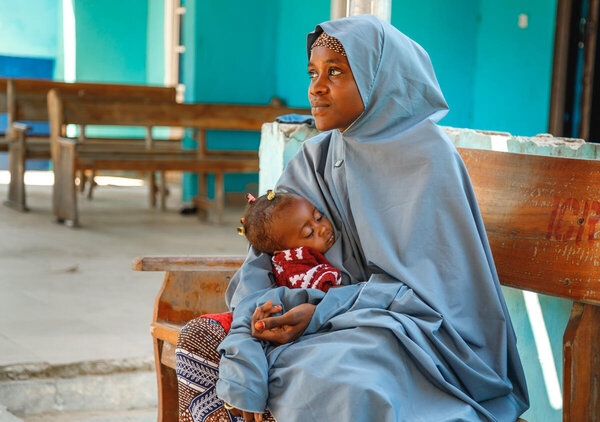Increased insurgent attacks in Nigeria threaten regional stability and drive sharp spike in hunger

Attacks by insurgent groups in Nigeria have intensified throughout 2025. Jama’at Nusrat al-Islam wal-Muslimin (JNIM), an al-Qaeda affiliate, reportedly carried out its first attack in Nigeria last month. Meanwhile, the insurgent group Islamic State in West Africa Province (ISWAP) is said to be pursuing its expansion across the Sahel. Other recent incidents include the killing of a brigadier soldier in the northeast and attacks on public schools in the north, where several teachers and hundreds of schoolgirls remain missing.
“Communities are under severe pressure from repeated attacks and economic stress,” said David Stevenson, WFP Country Director and Representative in Nigeria. “If we can’t keep families fed and food insecurity at bay, growing desperation could fuel increased instability with insurgent groups exploiting hunger to expand their influence, creating a security threat that extends across West Africa and beyond.”
Northern Nigeria is experiencing the most severe hunger crisis in a decade with rural farming communities the hardest hit. Nearly six million people in the north are projected to face crisis levels of hunger or worse during the 2026 lean season – June to August - in the conflict zones of Borno, Adamawa and Yobe states. This includes some 15,000 people in Borno State who are expected to confront catastrophic hunger (Phase 5, famine-like conditions). Children are at greatest risk across Borno, Sokoto, Yobe and Zamfara, where malnutrition rates are highest.
The dire situation has been compounded by funding shortfalls that diminish WFP’s ability to provide life-saving assistance. In the northeast – where nearly one million people depend on WFP’s food and nutrition assistance - WFP was forced to scale down nutrition programmes in July, affecting more than 300,000 children. In areas where clinics closed, malnutrition levels deteriorated from “serious” to “critical” in the third quarter of the year.
Despite soaring needs, WFP will run out of resources for emergency food and nutrition assistance in December. Without urgent funding, millions will be left without vital support in 2026, risking more instability and deepening a crisis that the world cannot afford to ignore.
Note to editors:
Photos can be accessed here.
Broadcast quality video footage can be accessed here.
Emergency page can be accessed here.
# # #
The United Nations World Food Programme is the world’s largest humanitarian organization saving lives in emergencies and using food assistance to build a pathway to peace, stability and prosperity for people recovering from conflict, disasters and the impact of climate change.
Follow us on X, formerly Twitter, via @wfp, @wfp_nigeria
Topics
Nigeria Hunger Conflicts NutritionContact
For more information please contact (email address: firstname.lastname@wfp.org):
Chi Lael, WFP/Abuja, Mob. +234 8025 533 218
Djaounsede Madjiangar, WFP/Dakar, +221 77 639 4271
Gemma Snowdon, WFP/ Rome, Mob. +39 347 382 3210
Nina Valente, WFP/ London, Mob. +44 (0)796 8008 474
Martin Rentsch, WFP/Berlin, Mob +49 160 99 26 17 30
Shaza Moghraby, WFP/New York, Mob. + 1 929 289 9867
Rene McGuffin, WFP/ Washington Mob. +1 771 245 4268
